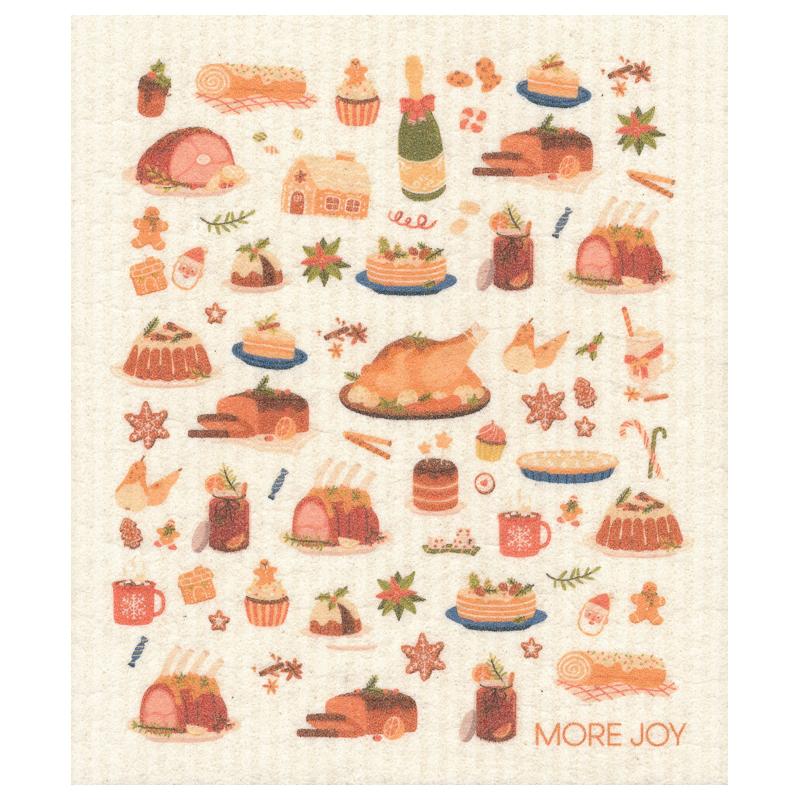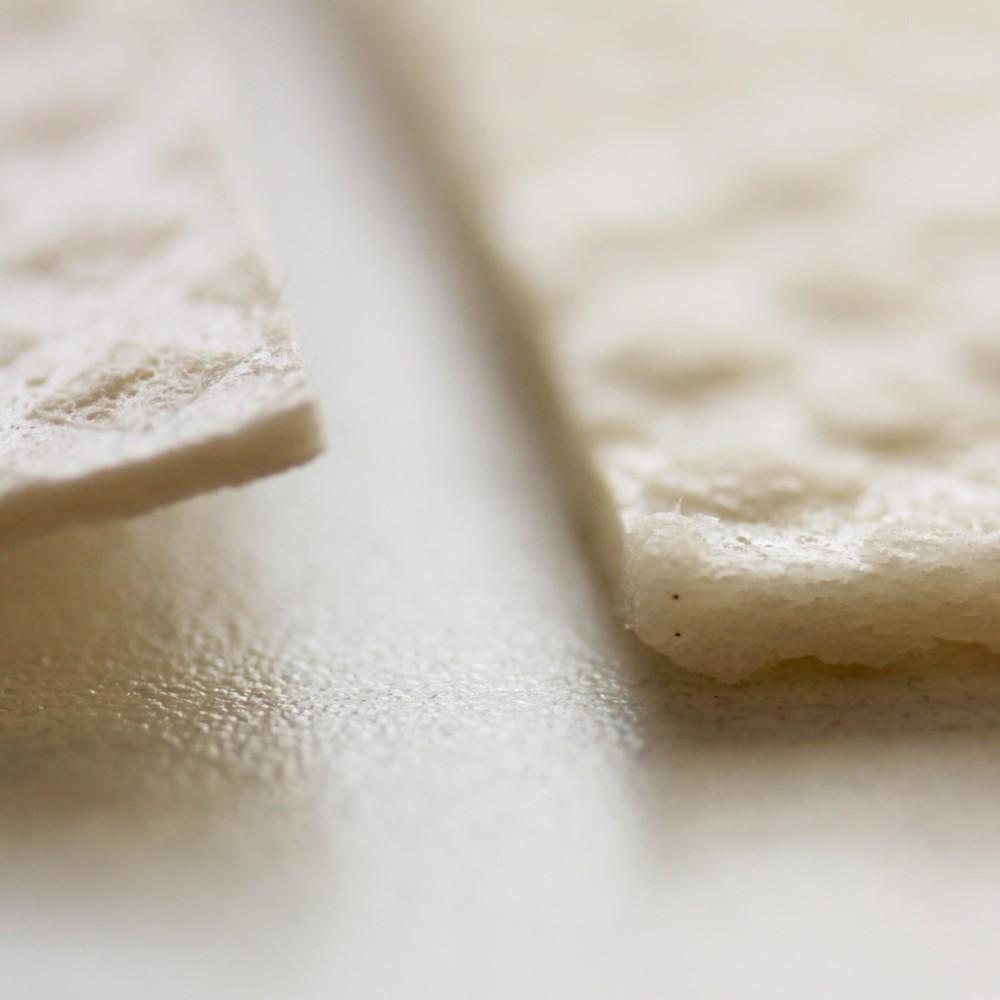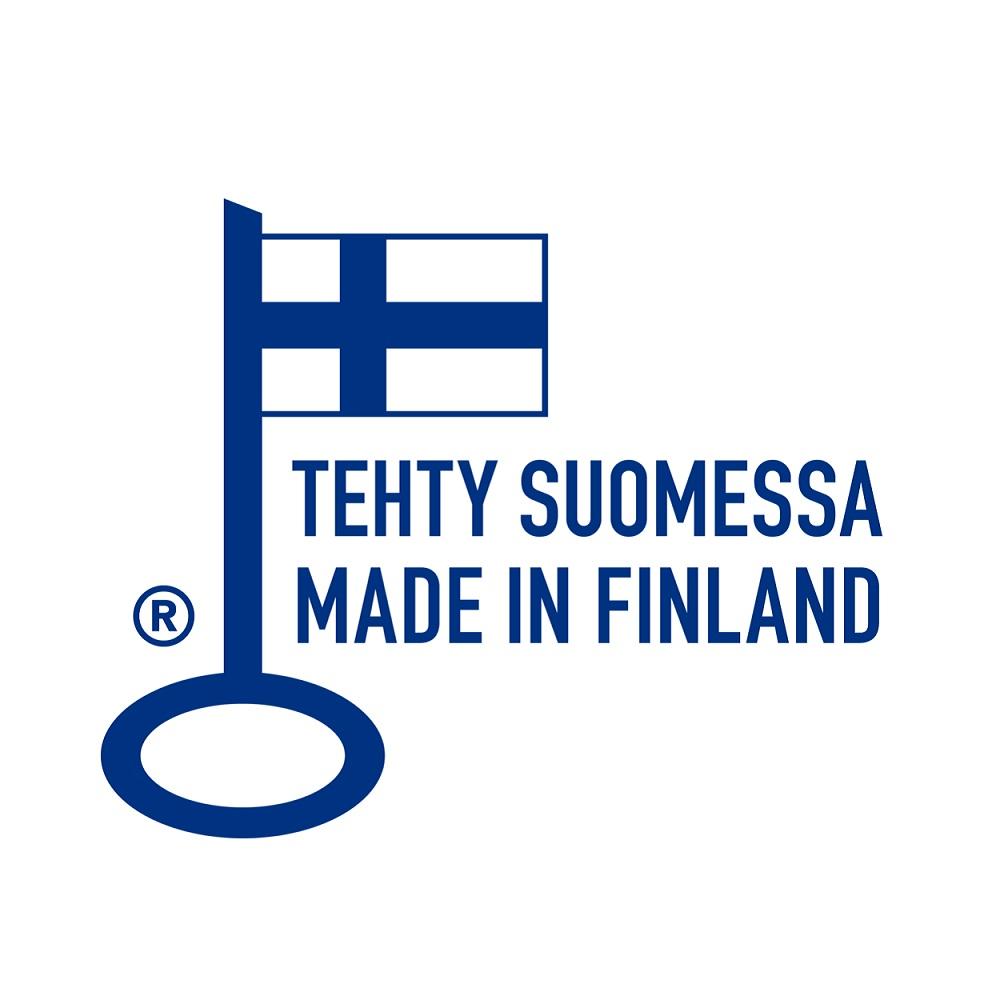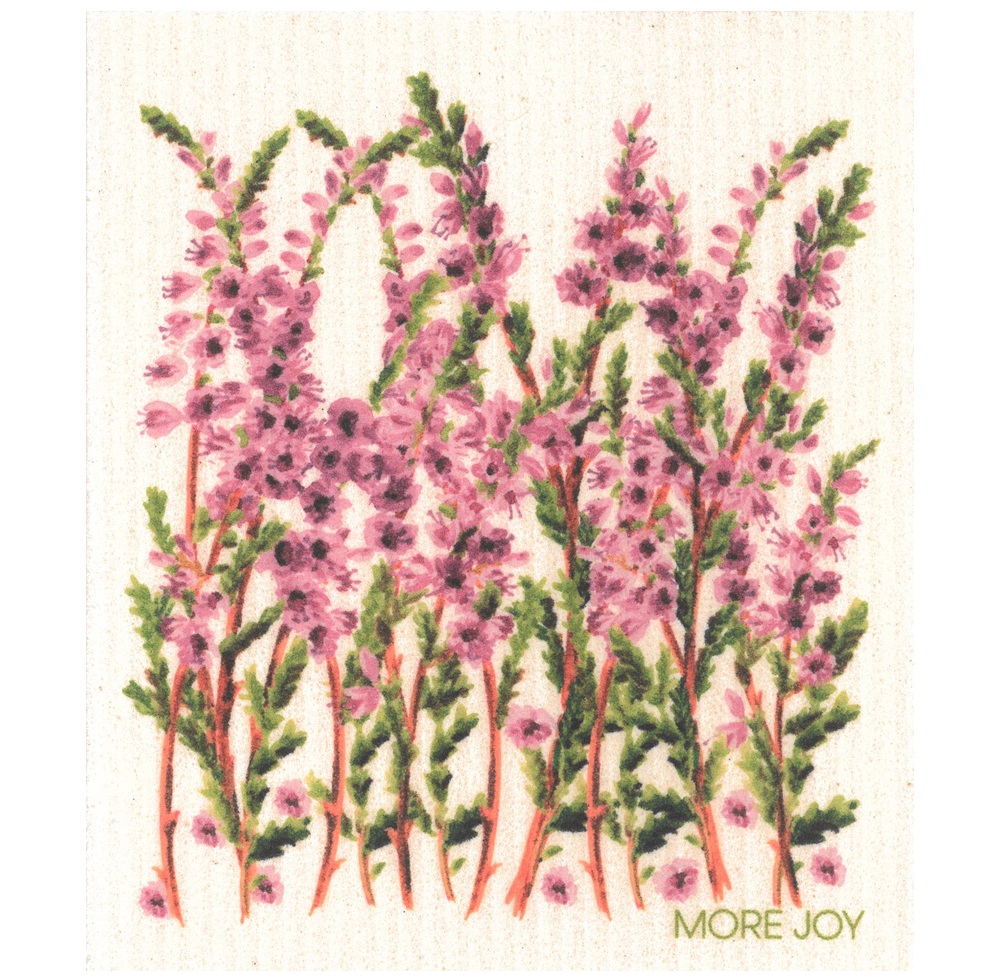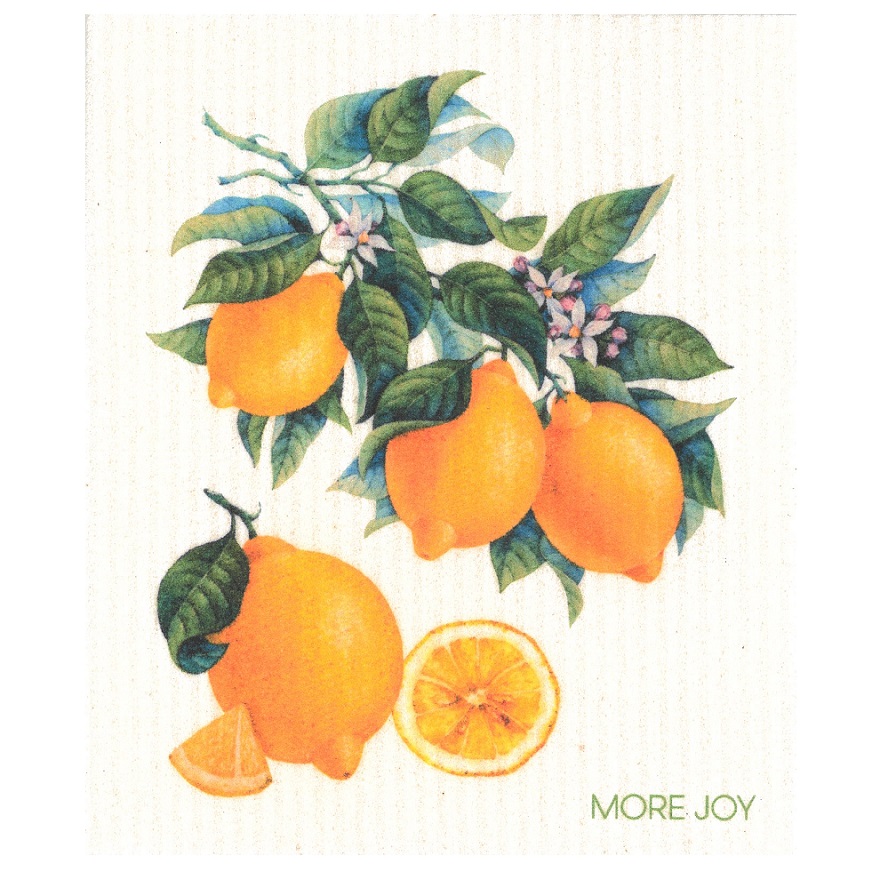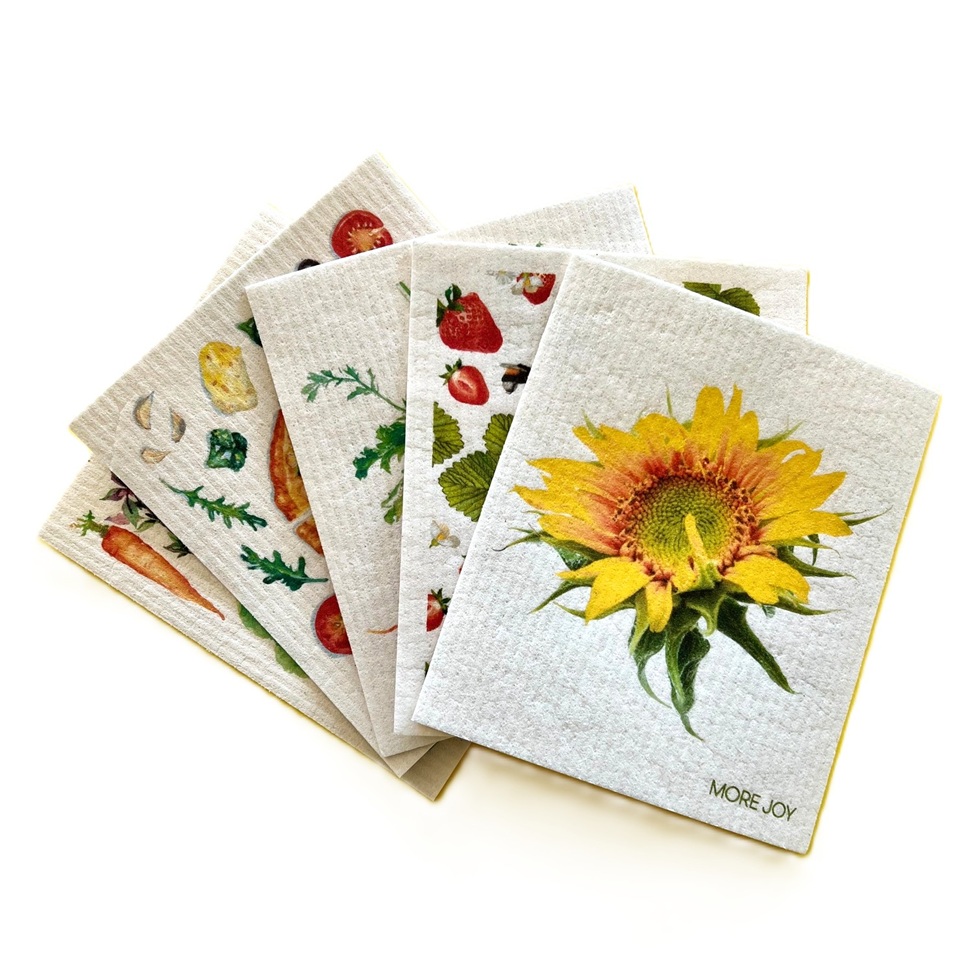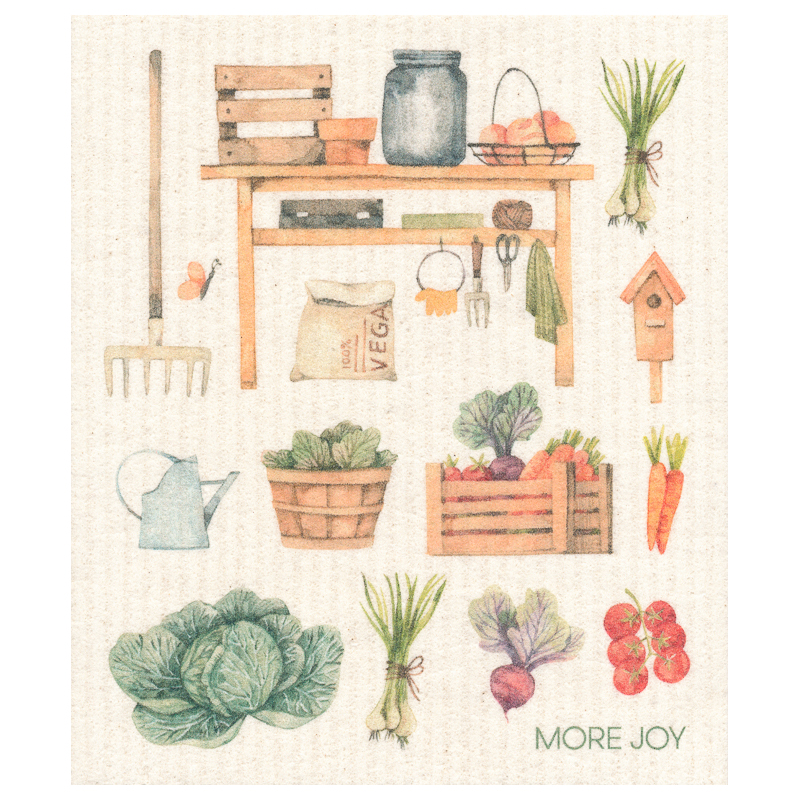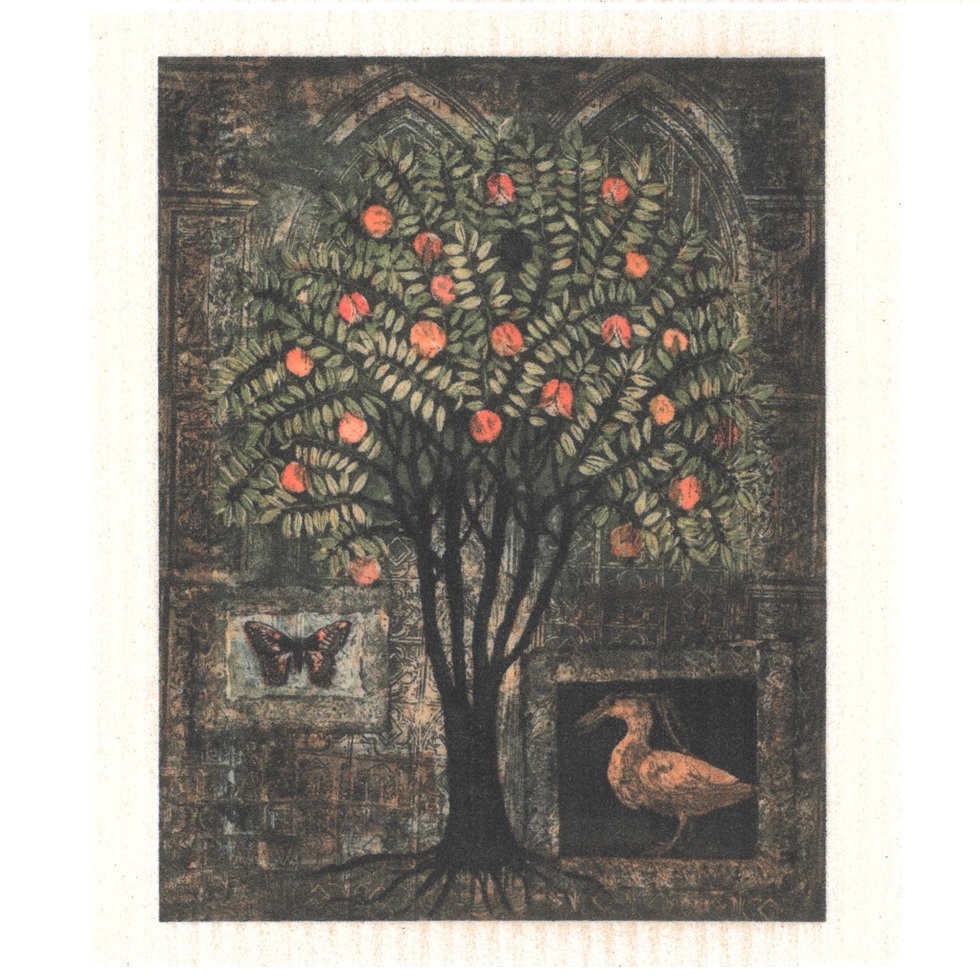Dishcloth Christmas Dinner
2,00 €
- Cellulose - Cotton
- Machine washable
- Biodegradable
- Water-based pigment dyes
68 in stock
Dihcloth Christmas Dinner is a product that we have printed with environmentally friendly colors and completely without water. The material of the high-quality, machine-washable dishcloth or sponge cloth, is Norwegian FSC-certified cellulose fiber. It is also further processed in the Nordic countries. The proportion of cellulose in the product is 70%. It is supplemented by cotton fiber, which is no longer suitable for textile production, but would end up burdening the earth as waste. It can be put to good use in the process of making dishcloths. The production of the material as 100% natural fibers was already patented in the 1950s. It is manufactured by only two factories in Europe. Sea salt is used as an auxiliary ingredient in the preparation, which is used over and over again. The key tag on the product tells that product is made in Finland.
A natural fiber kitchen towel, like a dishcloth, is a product with a long life cycle. Dishcloth can withstand use, it can be washed, boiled, rinsed and used again and again. Finally, the product can be disposed of as bio-waste. The best and most environmentally friendly way to wash and freshen a cloth: Place the kitchen cloth wide in the sink. Sprinkle soda on top. Add a small amount of clear food vinegar and let it bubble. When the foaming stops, rinse with cool water and hang to dry. The scent is fresh to wear again.
The best tip for disposal is to wrap a damp dishcloth around a store-bought fresh herb growing in soil or a rhizome in a flower pot and replant the herb or flower in a breathable pot. In this way, the cloth maintains even moisture and helps the growth process when it is planted. The material will completely settle in 24 weeks. The dishcloth therefore turns into a new growth energy. Cloths that are no longer in use can also be dug into a flower bed in the garden. When disposing of an end-of-use product in a bio-waste container, it should be chopped into a few smaller pieces to speed up disposal. Read more about environmentally friendly cleaning on our blog.
You may also like

Fast delivery
The products are packaged in the same or
the next working day.

Domestic company
All products are manufactured,
are stored and delivered from Finland.



